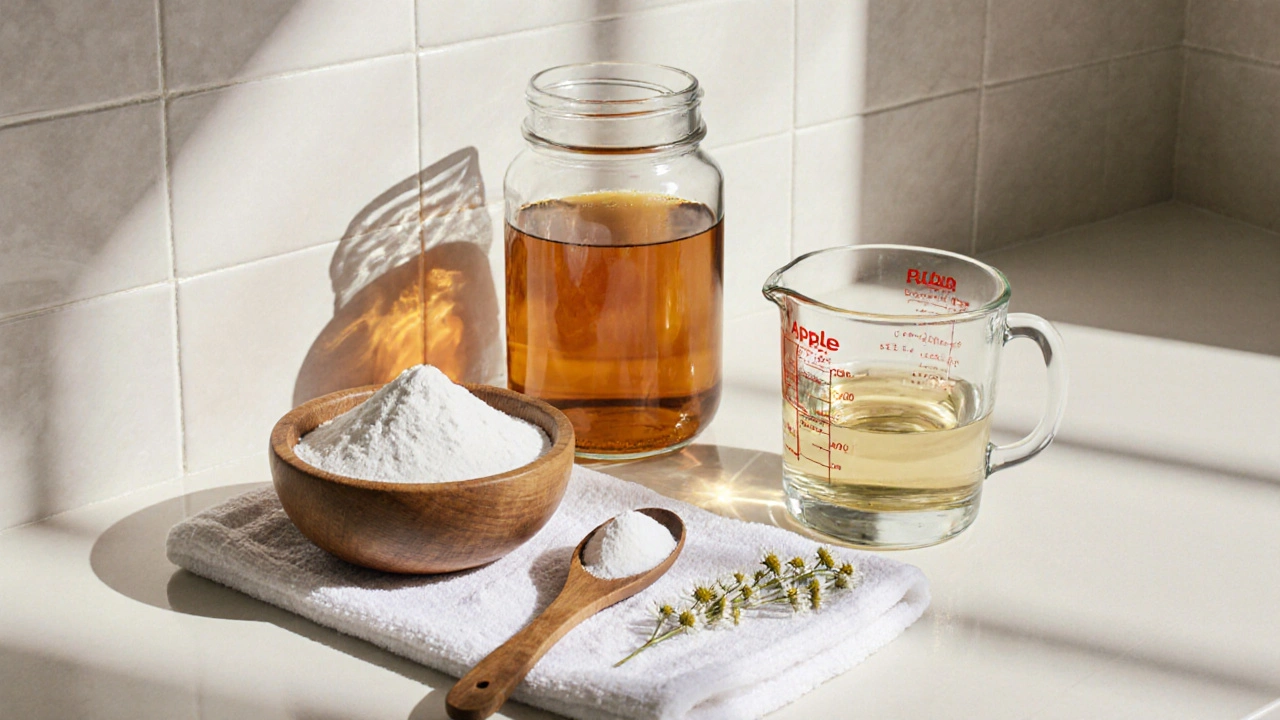Domácí mytí vlasů: jak často, jak správně a co použít
When you wash your hair at home, you're not just cleaning it—you're managing its health, shine, and even your scalp's balance. Domácí mytí vlasů, pravidelné čištění vlasů v domácím prostředí pomocí šamponu a kondicionéru. Also known as pravidelné mytí vlasů, it's the foundation of every good hair routine, whether you have oily roots, dry ends, or curly chaos. Many people think washing hair every day is normal, but that’s often the problem—not the solution.
What you need depends on your typ vlasů, fyzikální a chemické vlastnosti vlasů, které určují, jak často potřebují čištění a hydrataci. If your hair gets greasy by noon, you likely have oily scalp—maybe you’re overwashing with harsh shampoos. If your ends are brittle and staticky, you might be washing too often and stripping natural oils. And if you live where tvrdá voda, voda s vysokým obsahem minerálů, která může ztěžovat mytí vlasů a způsobovat opotřebení a suchost. is the norm, you’re probably dealing with buildup that no shampoo can fully rinse out. That’s why some people swear by vinegar rinses or filtered water for the final rinse.
Don’t just pick any shampoo because it smells nice. Look at the ingredients. If it has sulfates, silicones, or alcohol high on the list, it might be drying out your hair over time. Instead, try natural vlasové oleje, přírodní oleje jako kokosový, mandlový nebo arganový, které pomáhají hydratovat a chránit vlasy při mytí. applied before washing—this can reduce damage and lock in moisture. And if you’re washing less often, make sure you’re still massaging your scalp to stimulate circulation and remove dead skin.
Seasons matter too. In winter, your hair gets drier, so you might cut back from daily to every other day. In summer, sweat and sun exposure mean you might need to wash more—but still avoid hot water and over-shampooing. Your hair isn’t a car you clean every morning. It’s a living system that needs balance, not punishment.
There’s no universal rule for how often to wash hair. Some people do it every three days. Others every week. It’s not about the calendar—it’s about how your scalp feels, how your hair looks, and whether it’s getting tangled or greasy too fast. Start by tracking your habits for two weeks. Note what you use, how your hair reacts, and when it starts looking dull or oily. Then adjust.
Below you’ll find real-life guides that cover exactly this: how to choose the right products, how to deal with dandruff or oily roots without overwashing, what oils actually work, and how to make your home hair care routine simple, effective, and tailored to you. No fluff. No myths. Just what works.

Nahraďte šampon: nejlepší alternativy pro zdravé vlasy
Objevte praktické a přírodní alternativy k šamponu, jako soda, ocet, kokosový olej a další, a naučte se, jak je bezpečně používat pro zdravé vlasy.
